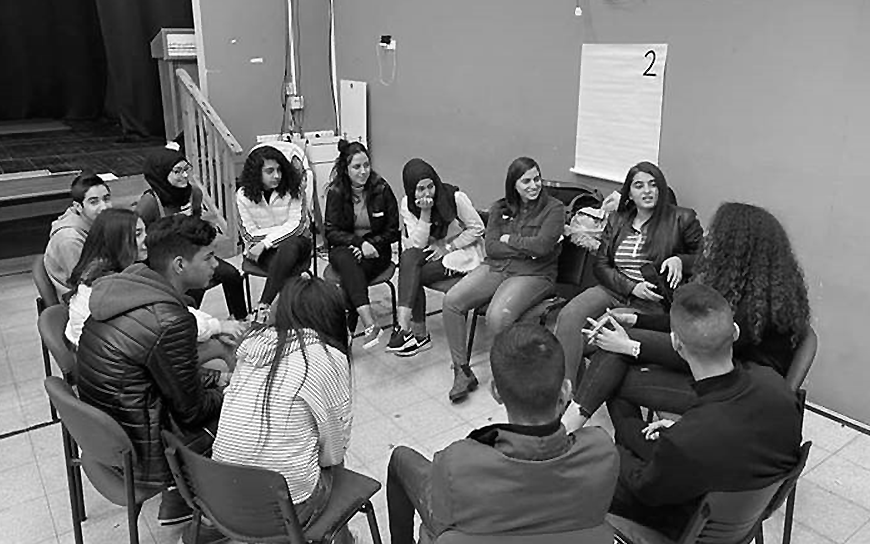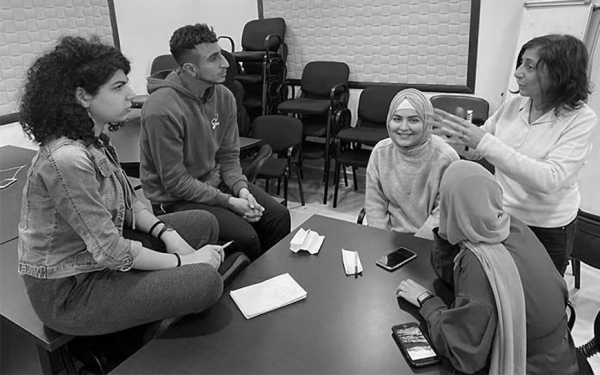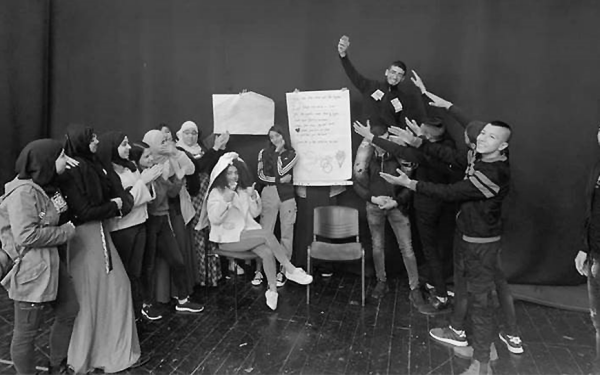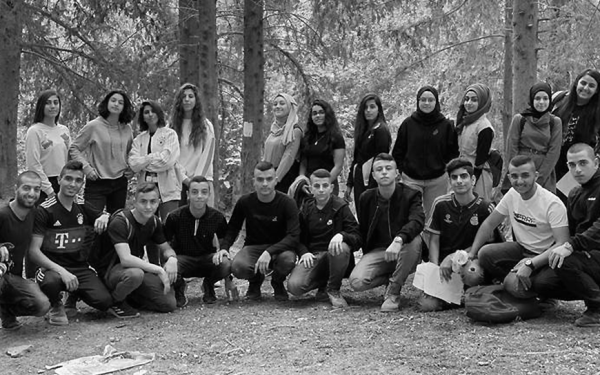
Baladna is a Haifa-based organisation that works with Arab Palestinian youth in Israel to help them achieve their potential. The term baladna, which infers local belonging and ownership, was a deliberate choice of naming for this unique association.
Established in 2001, at a time when there were no national NGOs working with Arab youth, this award-winning organisation works to empower young Palestinians by giving them the opportunity to develop their ideas and to become aware of their responsibilities as future leaders of their community. Key premises of the organisation are the defence of human rights, democracy and gender equality.
Encouraging young people to play an active role in society
Nidaa Nassar, director of Baladna, explains that Arab communities in Israel face many challenges, not least of which are their weak political representation and organisation and the lack of services and development policies in Arab localities. The situation for young people is particularly difficult.
“They are born in the Israeli context; it is the only thing they know. They see the reality they live in as a normal one and they absorb an inferiority complex,” explains Nassar.
The organisation works to politicise young people, which for Baladna means helping them to reflect on their personal lives and the overall challenges faced within Arab Palestinian society in Israel.
“We want young people to link their personal challenges with the broader political context and to help them advocate for their rights as Arab Palestinians in Israel,” Nassar says. “Real democracy is the only way to protect your rights. If you do not advocate for your rights, then the reality you live in becomes your normality.”
Baladna teach young people how to speak up and to express themselves freely. It also makes them aware of the risks they face as Arab Palestinians living in Israel and active within the political sphere.
The team at Baladna are focused on fostering progressive democratic values and encouraging the young people they work with to address the Palestinian political context through their own perspectives.
“We believe in equality, in freedom and in equal opportunity and respect for all. We believe that a human rights and democracy lens offers a way of advancing our struggle as Palestinians. It is a more constructive and logical way to work on and face our reality,” says Nassar.

A community driven initiative
Nassar explains that it is the young people who sit at the heart of Baladna. The team approaches youngsters, most of whom are still teenagers, with potential projects on themes such as crime or gun violence or freedom of expression, but in the end it is the youths who decide the focus.
One of their most successful initiatives was a study on gun violence amongst youth, who today make up 50 percent of all shooting victims.
As Nassar puts it, “Everyone wants to eliminate crime, but society is overwhelmed and afraid to act. Baladna respond to this by working with the young people involved and getting to the root of the problem. We let them talk about this difficult issue. We try to understand how issues can be different from one village to another. We look at stories of affected people and of those implicated in criminal gangs so that we can build a fuller understanding of the challenges faced.”
As a bottom-up-focused organisation, it is the young people who understand the priorities and who develop activities to address the problems that their community faces.
Baladna simply provide the structure, training and technical support to make this happen. “People want to do things, but they don’t know how. We enable them to take action,” she explains.
“The broad political and social context is clear for us, and we are aware of the key challenges faced by young people. Unfortunately, there are few statistics and studies on Arab youth in general, which would give us better insights into the real issues they face.
“When we start working with young people, we make sure to develop a common and deep understanding about their needs and priorities and to listen to their ideas. It is a transformative process, not an activities-based one with outcomes we already know,” she explains. She admits this is not an approach all funders understand and endorse. “I am grateful that as a flexible donor, EED supports this strategy,” she says.

Feminism as part of society
Nassar explains that Baladna’s projects adopt a gender sensitive approach while addressing a large range of topics. She admits this can sometimes be difficult to explain to international funders. “We try to present the idea that we can be a feminist organisation without working exclusively with women,” she says.
Baladna prefer to take a wider view. “Feminism should be present in all social justice initiatives. We see the role of women as extending beyond the areas that are traditionally seen as ‘women’s issues’ as we believe that they should play an active leading role in all aspects of our society. For us, feminism is not some kind of separate initiative; it is at the centre of society and is present in every initiative. It shouldn’t be limited to projects that specifically seek to address the needs of women, such as initiatives focused on fighting violence against women. Such activities, albeit crucial, are not the only ones that necessitate a feminist lens,” she explains.

Working with society for society is Baladna’s way of building a new future for Arab Palestinians in Israel.
Nassar believes that there needs to be a shift in the way many development projects are viewed. “At Baladna, we adopt a holistic approach. We seek to enable a comprehensive transformation of society where affected communities identify their own priorities and build their own processes and frameworks to address their root problems. In contrast, many international foundations prefer to support service provision, which— although crucial in some contexts — fails to sustainably alter the status quo. Others focus on predetermined outcomes, which undermine grassroots decision-making,” she explains.
In the Palestinian context, she believes that formal political frameworks have stagnated. “There is a clear need to invest in grassroots activism, to build society’s resilience, and to organize the community. This can ensure a shift in approach at the formal level and that in turn can bring about real long-term change.”
This article reflects the views of the grantees featured and does not necessarily represent the official opinion of the EED.